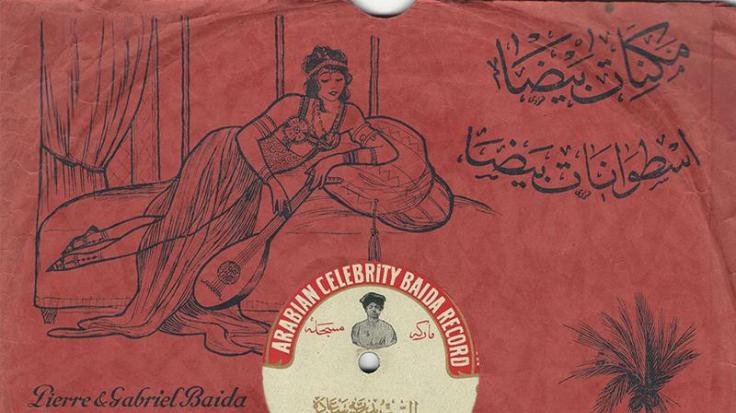Lebanon's revival of Arab music traditions

Listen carefully in Lebanon, and you may grasp the strains of classical Arab music breaking out of the oblivion to which it has been confined for decades.
Atop a mountain switchback leading to the stone-built village of Qornet al-Hamra, the Foundation for Arab Music Archiving and Research (Amar) attracts both musicologists and idle music lovers, who can listen to a collection of 78rpm records on a crank handle gramophone from 1922.
"The aim of the foundation is to safeguard and [spread] classical Arab music, from the beginning of the recording history at the end of the 19th century, to the beginning of the 1930s," Mounzer el-Hachem, a sound engineer at Amar, tells Al Jazeera, as his eyes follow the sinusoidal wave of the recording of an old 78 he is digitalising.
Hachem estimates that the foundation has around 6,500 records, thousands of hours of reels, and even some wax cylinders, one of the earliest recording mediums. While Amar focuses primarily on classical Arab music from Egypt and Syria, it also collects music from Lebanon, Iraq, Yemen and North Africa.
"Eventually, we are aiming to collect, restore and digitalise all the music from the Nahda, the Arab Renaissance," he says.
Nahda, which means "resurrection", refers to a period between the 18th and early 20th centuries, during which the Arab world experienced a political and cultural renewal, influenced by the reforms of the Ottoman Empire and the penetration of Western ideas and economic forces.
"The Arab Renaissance was accompanied by a musical revival in the Orient," says Nidaa Abou Mrad, a musicology professor at Beirut's Antonine University.
The revival was felt most in Egypt, where singer and composer Abdu al-Hamuli initiated a "hybridisation between the musical tradition from the Levant, called muwashshah; the urban popular music of Egypt; the musical tradition of the Sufis; as well as aspects of the Ottoman musical tradition", Mrad says.
From this intermingling emerged a new musical tradition, handed down orally from master to student, in which improvisation was key. The enjoyment (tarab in Arabic) provoked by its long performances, during which singers would often use witticisms, was such that this musical style is often simply called tarab.
But two events pushed classical Arab music into almost complete oblivion. First was the near destruction of the irreplaceable collections owned by companies that recorded the voices of Arab recording giants such as Yusuf al-Manyalawi and Fathiyya Ahmad.
The Arab archives of Odeon vanished in Germany during the second world war; those of the Lebanese company Baidaphon were buried under the rubble of the bombing of Berlin and of the Lebanese civil war and the Arab collection of Pathe was neglected and lost in the 1970s.
The second blow came at the Cairo Congress of Arab Music in 1932, where the evolution of Arab music diverged from its classical traditions.
"In 1932, during the Cairo Congress of Arab Music, Egyptian musicians and musicologists decided to modernise their music, to safeguard it against the competition of Western music, during a period of growing nationalism," French musicologist Jean Lambert tells Al Jazeera.
"They notably introduced musical notation and, progressively, the oral musical tradition vanished. It is this living but forgotten music that Amar Foundation is archiving, so that the public can rediscover its wealth," says Lambert, who recently published a collection of discs from the Cairo Congress.
When Kamal Kassar, the founder of Amar, bought the collection of Abd al-Aziz Anani, an Egyptian music lover of the Nahda period, the Lebanese philanthropist was overwhelmed by the historical importance of his purchase. It prompted him to create a foundation to restore and digitalise thousands of discs and reels saved from obscurity.
While discovering the treasures of this musical era, what grabbed the attention of Salwa Jaradat, a Palestinian student of Arab music and an archivist at Amar, was the strength of character of its female singers.
Source: Al Jazeera
